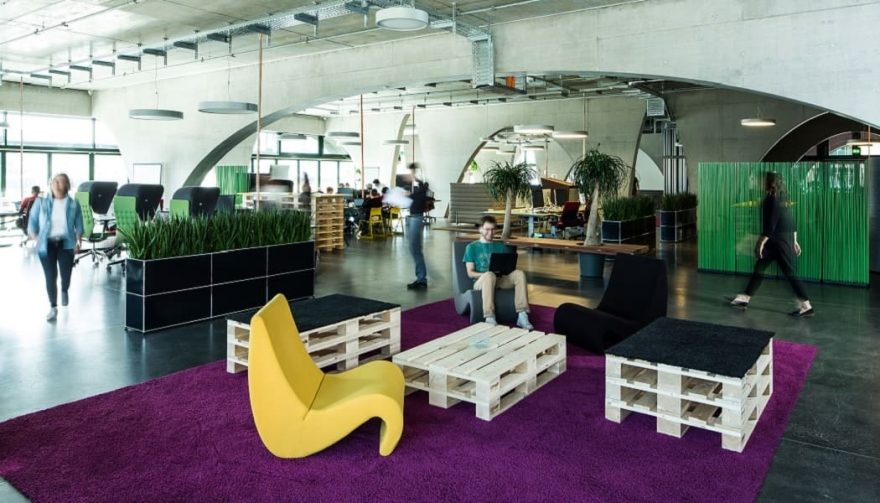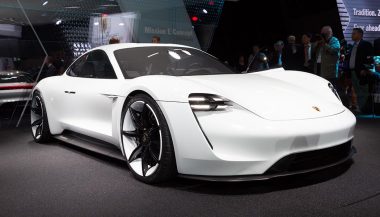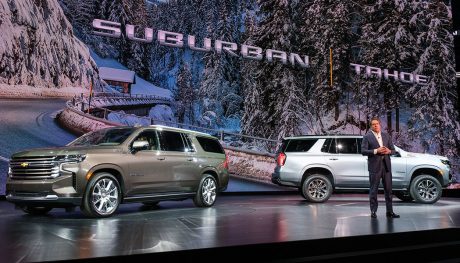
The inviting atmosphere in the Porsche Digital Lab hopes to spur collaboration
New Porsche Digital Lab Is Innovation In Motion
If you haven’t heard of the Porsche Digital Lab, you’re not alone. It’s a new venture from the German automaker. While it is relatively unknown right now, soon it should play a big role in the evolution of the automobile.
Porsche Digital Lab: A New Venture
Back in May of 2016, without a lot of fanfare, Porsche announced Porsche Digital GmbH had been established. As part of this new venture, the Porsche Digital Lab opened in Berlin. Plenty of automakers have technology divisions, but this is something else entirely.
The Porsche Digital Lab is a platform where start-ups, tech companies and organizations that work in the sciences can collaborate on projects. To help with this goal, Porsche subsidiary MHP became a partner. MHP does consulting for management and information technology.
Like a true tech company, the lab is one big area. There are desks, but no walls. Plenty of green elements are scattered about. One glance tells you it’s a space set up to encourage collaboration.
Porsche Leadership
Porsche has been a real innovator for quite some time. How else could the company use engines with relatively small displacements and compete against cars packing monstrous V-8 engines? Interestingly, Porsche signaled this industry shift long ago.
The 959 was a visionary vehicle. It is a prime example of how Porsche is often ahead of the curve. Electronic all-wheel drive, plus other aids you couldn’t find on other vehicles in the late 1980s, were among the hallmarks. The 959 was made of high-tech composites, shedding unnecessary weight. The result was something balanced, incredibly fast and still compelling today.
Again, Porsche has flexed its technological muscles with the 918. Moreover, there are plenty of other examples. The point is Porsche has a history of being a mover and shaker in automotive tech.
Berlin: Hotbed For Innovation
Some people might still think of Berlin as a city divided by a big cement wall. That was long ago. Since then, citizens have been working to break down other barriers. They’ve made it a place where innovation runs strong. This is why the Porsche Digital Lab is housed there.
Office space is in high supply. Getting a big, open floor plan for gathering groups is completely doable. Plenty of organizations have been doing just that, creating a hybrid between office spaces and think tanks.
With this collaborative attitude, Porsche is looking to hit pay dirt. The field of advanced car technologies is wide open right now. While people rave about Tesla, so many possibilities exist that most automakers are in a dead heat to reach different milestones.
By getting together with other organizations focused on fields other than the auto industry, the Porsche Digital Lab could create some unexpected solutions. Loads of cultural, tech and social action groups in Berlin want to transform the world. If Porsche can bring some of these concepts to market, the result could be downright revolutionary.
What kinds of innovations are we talking about? It could range anywhere from how batteries are manufactured, what upholstery is made of, the type of controls we use to interact with cars, how vehicles connect to each other and infrastructure. It seems the sky is the limit.
Boris Behringer, the Porsche Digital Lab director, pointed out there’s another big advantage of being in Berlin and not Stuttgart, where Porsche is based. “(We) can take care of our business without the distraction of daily operations,” he said.
Instead of focusing on production schedules and other nuts-and-bolts components of running an automaker, this group can keep its head in the clouds. As a result, it just needs to produce results.
The Future of Auto Tech
Like it or not, technology is and will continue to affect cars. In the next 10 years or so, innovations could bring us to the next automotive revolution. Porsche stands poised to help lead the way.
Behringer has worked in quite a few different departments inside of Porsche. He wants the lab to benefit from a wide range of departments inside the automaker. Consequently it could impact everything from how vehicles are transported to dealers, to how recalls are handled.
Spotting and exploring new trends are some of the many tasks the lab will pursue. That will keep Porsche ahead of other automakers, as it gets a jump start on new directions. Of course, it will explore how things like big data, the internet of things, cloud applications and other technologies will apply to cars.
The Lab will also produce components for Porsche, presumably for testing. It might even make some prototypes, which we could see at future shows. Either way, to watch this new organization at work should be interesting.
Growth
The Porsche Digital Lab had only six employees when it launched. Soon, it should grow to about 15. If all goes well, those numbers will continue to swell. Of course, on any given day there are quite a few more people in the Lab, because it’s set up for collaboration. Even though it’s small, this unique approach could result in some big outcomes.
Even if you don’t live or work in Berlin, the Porsche Digital Lab is still open to collaboration. Employees will work with other teams or people remotely, extending the Lab’s influence further.
Due to Porsche’s track record for pushing automotive tech, don’t write off the Porsche Digital Lab just yet. As Jeremy Clarkson pointed out, this is the company that took what was essentially a VW Beetle and churned out something revolutionary.





